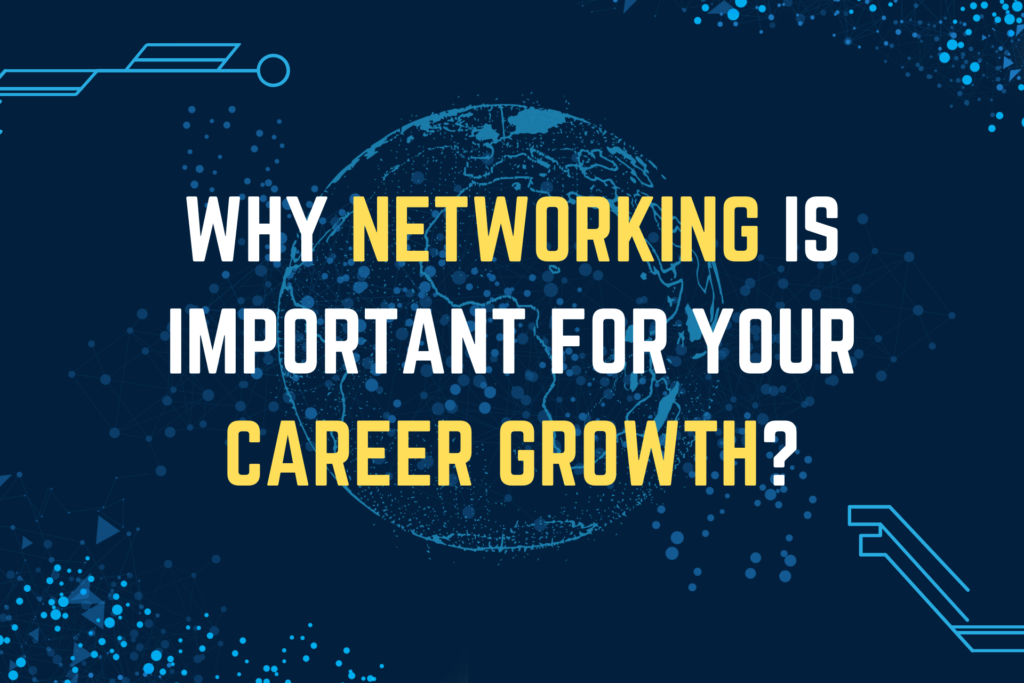In today’s fast-paced world, networking isn’t just a buzzword—it’s a crucial skill that can open doors to countless opportunities, whether you’re a seasoned professional or just starting out. But what does it really mean to network effectively? How can you build meaningful connections that go beyond mere exchanges of business cards? In this comprehensive guide, we’ll delve into the art of networking, exploring strategies to build connections that matter and make a lasting impact.

Understanding Networking
Before diving into strategies and tips, let’s clarify what networking truly means. At its core, networking is about building and nurturing relationships that can support your personal and professional growth. It’s not merely about collecting contacts; it’s about creating a network of mutually beneficial relationships. Effective networking is grounded in trust, respect, and genuine interest in others.
The Importance of Networking
Networking can significantly impact your career and personal development in various ways:
- Career Advancement: Connections often lead to job opportunities and career growth. Many positions are filled through referrals rather than job postings.
- Knowledge Sharing: Networking allows you to gain insights and knowledge from others in your field, helping you stay updated with industry trends and best practices.
- Mentorship Opportunities: Building relationships with experienced professionals can lead to valuable mentorship, providing guidance and advice that can shape your career trajectory.
- Business Development: For entrepreneurs and business owners, networking can lead to partnerships, client acquisitions, and valuable business advice.
- Personal Growth: Networking helps you build confidence, communication skills, and a broader perspective on various topics.
Building a Solid Foundation
Self-Assessment
Before reaching out to others, take some time to assess your own strengths, goals, and interests. Understanding what you bring to the table will help you engage more effectively with others. Consider the following:
- Your Goals: What are your short-term and long-term goals? Are you looking to advance in your current field, explore new opportunities, or expand your business?
- Your Strengths: What skills and knowledge do you possess that could be valuable to others? How can you leverage these strengths in your networking efforts?
- Your Interests: What topics or industries are you passionate about? Identifying these can help you connect with like-minded individuals.

Setting Clear Objectives
Having clear objectives for your networking efforts will guide your approach and ensure that your interactions are purposeful. Define what you hope to achieve through networking, such as:
- Expanding your professional circle
- Seeking advice or mentorship
- Exploring new career opportunities
- Building partnerships or collaborations
Effective Networking Strategies
1. Start with Your Existing Network
Often, the best networking opportunities come from the connections you already have. Reach out to friends, family, colleagues, and acquaintances. Let them know what you’re looking to achieve and ask if they can introduce you to relevant contacts.
2. Attend Networking Events
Participating in industry-specific conferences, seminars, and workshops is a great way to meet new people. Here are some tips for making the most of these events:
- Prepare Your Elevator Pitch: Have a concise and engaging introduction ready. This should include who you are, what you do, and what you’re looking to achieve.
- Be Approachable: Smile, make eye contact, and engage in active listening. Showing genuine interest in others will make them more likely to remember you.
- Follow Up: After the event, follow up with the people you met. Send a personalized email or LinkedIn request, mentioning something specific from your conversation to help jog their memory.
3. Leverage Social Media
Social media platforms like LinkedIn, Twitter, and industry-specific forums can be powerful tools for networking. Here’s how to use them effectively:
- Optimize Your Profile: Ensure that your profiles are up-to-date and professional. Highlight your skills, achievements, and interests.
- Engage with Content: Share relevant content, comment on posts, and participate in discussions. This will help you stay visible and engage with others in your field.
- Join Groups and Communities: Participate in groups related to your industry or interests. Contributing to discussions can help you connect with others who share your passions.
4. Seek Out Informational Interviews
Informational interviews are a great way to learn more about a particular role, industry, or company. Reach out to professionals you admire and request a brief meeting or phone call. Be respectful of their time and come prepared with thoughtful questions.
5. Offer Value First
Networking should be a two-way street. Before asking for favors or assistance, think about how you can provide value to others. This might include:
- Sharing Knowledge: Offer insights or advice based on your expertise.
- Making Introductions: Connect people who could benefit from knowing each other.
- Providing Resources: Share useful articles, tools, or opportunities that could help others.

6. Follow Up and Stay in Touch
Maintaining relationships is as important as making them. Regularly check in with your contacts, even if you don’t need anything from them at the moment. This can be done through:
- Emails: Send occasional updates or check-in messages.
- Social Media: Engage with their posts and celebrate their achievements.
- Personal Notes: A handwritten note or card can be a thoughtful way to reconnect.
7. Be Authentic
Authenticity is key to building meaningful connections. People are more likely to respond positively to genuine interactions rather than superficial exchanges. Be yourself, and focus on building real relationships rather than just expanding your contact list.
Overcoming Networking Challenges
Networking can sometimes feel intimidating or challenging. Here are some common obstacles and how to overcome them:
1. Networking Anxiety
It’s normal to feel nervous about meeting new people. To manage anxiety:
- Prepare Ahead: Research the event or individuals you’ll be meeting.
- Practice: Rehearse your introduction and conversation starters.
- Take Breaks: If you start feeling overwhelmed, take a short break to regroup.
2. Rejection or Lack of Response
Not everyone will be responsive or interested. If you face rejection:
- Don’t Take It Personally: Understand that people have various reasons for not responding.
- Move On: Focus on connecting with others who are more receptive.
3. Maintaining Connections
Busy schedules can make it challenging to stay in touch. To manage this:
- Set Reminders: Use tools or apps to remind you to check in with contacts.
- Be Consistent: Establish a regular schedule for networking activities, such as monthly check-ins.

Measuring Your Networking Success
To gauge the effectiveness of your networking efforts, consider:
- Quality of Connections: Evaluate the strength and relevance of the relationships you’ve built.
- Achievement of Goals: Reflect on whether your networking activities have helped you meet your objectives.
- Feedback: Seek feedback from mentors or colleagues on your networking approach and make adjustments as needed.
Conclusion
Networking is an invaluable skill that can significantly enhance your personal and professional life. By building genuine relationships, offering value, and maintaining connections, you can create a robust network that supports your goals and aspirations. Remember, networking is not just about exchanging contact information; it’s about cultivating meaningful connections that can lead to new opportunities and growth.
Embrace the journey of networking with an open mind and a genuine interest in others. Whether you’re attending events, engaging on social media, or seeking mentorship, each interaction is a chance to build a connection that matters. So, take the first step, and start building a network that will enrich your life and career for years to come.








2 thoughts on “Why Networking Is Important for Your Career Growth”